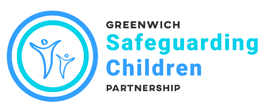Children and Young People: Online Safety

The Internet is great for learning, finding out information and staying in touch with family and friends, but it is important to keep yourself safe online.
You can stay safe online by:
- Not sharing personal details, login details or passwords. Keep things like your address, phone number, full name, school and date of birth private. You should never give out your password or log-in information. Remember that people can use small clues like a school logo or a tagged location in a photo to find out a lot about you. You can check what people can see in your privacy settings.
- Thinking about who you’re talking to. People online may not always be who they say they are. There are lots of ways that people try to trick you into trusting them online. Even if you like and trust someone you’ve met online, never share personal in-formation with them or agree to meet up with them, without a trusted adult.
- Covering your webcam. When not using your webcam, you should cover it as some viruses can let someone access your webcam without you knowing.
- Thinking before you post things. Don’t upload or share anything you wouldn’t want your parents, carers, teachers or future employers seeing. Once you post something, you lose control of it. People could screenshot it or share it.
- Watching out for phishing and scams. Phishing is when someone tries to trick you into giving them information, like your password. Never click links from emails or messages that ask you to log in or share your details, even if you think they might be genuine. If you’re asked to log into a website, go to the app or site directly and log in from there.
ThinkUKnow has information on online safety, social media information, how to set privacy settings and more online safety. Click here to visit the ThinkUKnow website.
